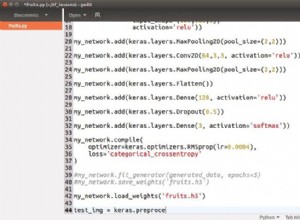Seit ich diese Frage gestellt habe, gab es einige Upvotes zu dieser Frage, also schätze ich, dass mehr Leute nach einer Lösung suchen. In meinem Fall habe ich mich für mein spezifisches Problem entschieden, von tensorflow zu wechseln bis pyomo um die eingeschränkte Optimierung auszuführen. Vielleicht kann das anderen helfen.
Sie können TFCO verwenden, das für TF> 1.4 verfügbar ist.
Hier ist ein konkretes Beispiel, wo wir minimieren möchten:
(x - 2) ^ 2 + y
s.t.
- x + y =1
- x> 0
- y> 0
import tensorflow as tf
# Use the GitHub version of TFCO
# !pip install git+https://github.com/google-research/tensorflow_constrained_optimization
import tensorflow_constrained_optimization as tfco
class SampleProblem(tfco.ConstrainedMinimizationProblem):
def __init__(self, loss_fn, weights):
self._loss_fn = loss_fn
self._weights = weights
@property
def num_constraints(self):
return 4
def objective(self):
return loss_fn()
def constraints(self):
x, y = self._weights
sum_weights = x + y
lt_or_eq_one = sum_weights - 1
gt_or_eq_one = 1 - sum_weights
constraints = tf.stack([lt_or_eq_one, gt_or_eq_one, -x, -y])
return constraints
x = tf.Variable(0.0, dtype=tf.float32, name='x')
y = tf.Variable(0.0, dtype=tf.float32, name='y')
def loss_fn():
return (x - 2) ** 2 + y
problem = SampleProblem(loss_fn, [x, y])
optimizer = tfco.LagrangianOptimizer(
optimizer=tf.optimizers.Adagrad(learning_rate=0.1),
num_constraints=problem.num_constraints
)
var_list = [x, y] + problem.trainable_variables + optimizer.trainable_variables()
for i in range(10000):
optimizer.minimize(problem, var_list=var_list)
if i % 1000 == 0:
print(f'step = {i}')
print(f'loss = {loss_fn()}')
print(f'constraint = {(x + y).numpy()}')
print(f'x = {x.numpy()}, y = {y.numpy()}')


